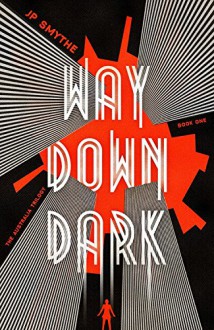
I still dream was a very good speculative sci-fi and has confirmed my love of James Smythe (as if I needed it) even more.
When the book opens we meet Laura when she’s a teenager. She’s destroying the latest phone bill to have hit the mat before her mother and step-father discover it. The reason she’s racked up such a bill is because she’s using the internet (this was the time when the internet had just begun and you needed to dial in to use it) to create an A.I. She doesn’t want the A.I to be much more than a therapist, helping her navigate life and listen to her woes. The last thing she wants is some conglomerate getting its dirty mitts on her technology and possibly using it in a way other than intended.
Laura’s father left several years before the beginning of the book; he simply walked out never to return. He, too, was a programmer and a very proficient one.
The book works in alternate chapters. I finished it a while ago so I’m struggling to remember whose perspective these chapters were from, but I remember one was from a boyfriend.
Throughout the book we follow Laura as she grows and moves to North America to continue working on her A.I, as well as training to be a computer programmer. While the book is very much focused on relationships, such as Laura and her absent father, mother and eventual husband as well as his family, there is an undercurrent of mystery surrounding the A.I and what it might be capable of if it reaches the wrong hands.
I’ve found in the past that Smythe’s writing can at times feel clunky, but that wasn’t the case here. While the time jumps were ever so slightly jarring, they weren’t something I found hugely problematic.
The novel wasn’t only about Oreon, Laura’s A.I, but also issues tethered very much to reality, such as Dementia and as previously stated, relationships. Tackling weighty subjects sometimes felt a bit false, although it did play in extremely well with the notion of the A.I and really took shape at the end of the novel. It was also a little long and could have been trimmed down by about 50 pages. Lastly, the ending, while nice and tying up loose ends, felt a little forced. There could also have been a little more tension throughout, but I did thoroughly enjoy the first two-thirds. I just felt the last third a little needless.
By the way, this is tagged on GR AS YA, but it's not. Apart from the first 30 pages or so, it's firmly of the adult persuasion.

 Log in with Facebook
Log in with Facebook 






